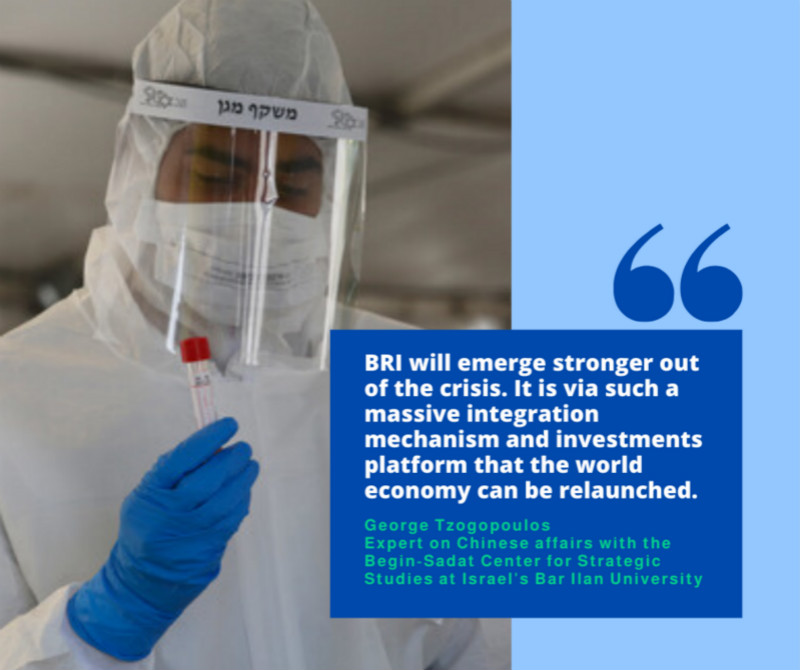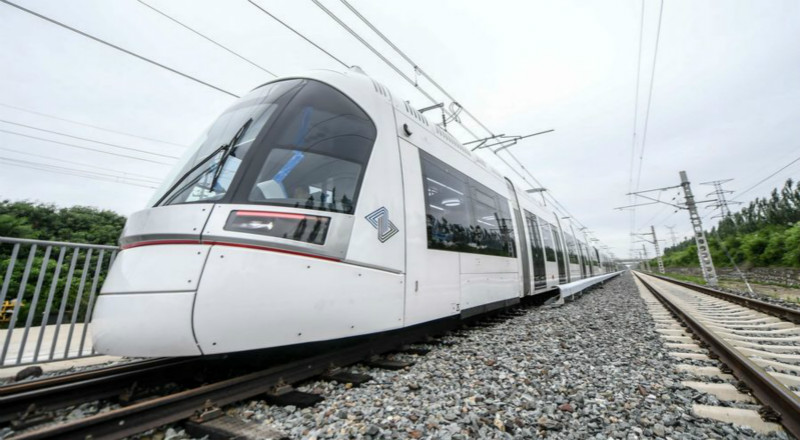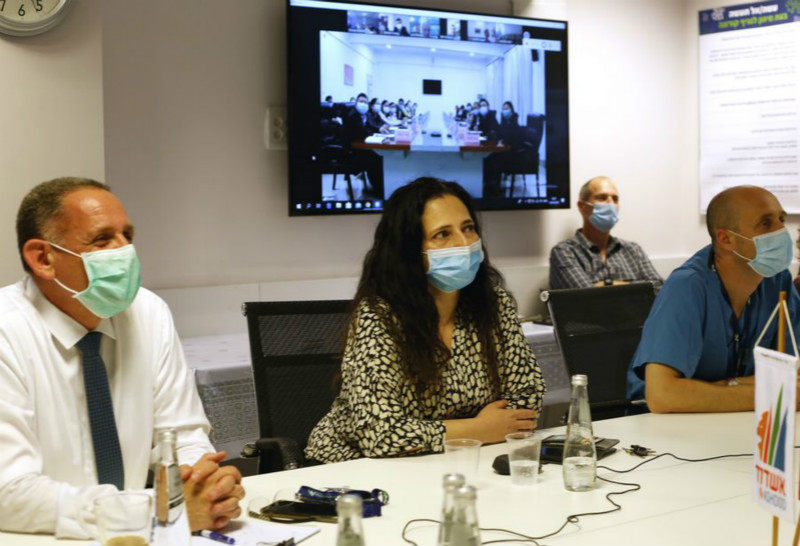


"BRI will emerge stronger out of the crisis. It is via such a massive integration mechanism and investments platform that the world economy can be relaunched," said George Tzogopoulos, an expert on Chinese affairs with the Begin-Sadat Center for Strategic Studies at Israel's Bar Ilan University.
by Keren Setton, Chen Wenxian
JERUSALEM, May 17 (Xinhua) -- Israeli experts have applauded the China-proposed Belt and Road Initiative (BRI) for its role in pushing forward world economic development amid challenges caused by the COVID-19 pandemic.
As the world economy is gradually recovering after weeks of lockdown due to COVID-19, the BRI has also regained its vitality in economic cooperation between China and its BRI partners.
"It is vital and it will continue despite the ongoing pandemic. China's policies are based on continuity and this is also the case for the BRI," said George Tzogopoulos, an expert on Chinese affairs with the Begin-Sadat Center for Strategic Studies at Israel's Bar Ilan University, in a recent interview with Xinhua.
He believes that China will continue to implement the vision.

Israel, known as a "start-up nation," is a founding member of the Asian Infrastructure Investment Bank and also a major country along the Belt and Road.
With the development of the BRI, an increasing number of Chinese companies have joined hands with Israeli partners, leading to the rise of mutual investment between the two nations and the improvement of infrastructure in Israel.
"China has the best infrastructure system in the world," Yuri Pines, a professor with the Asian Studies Department at the Hebrew University of Jerusalem, told Xinhua.
"Many of the countries within the BRI do need infrastructure projects and many of them will turn to China sooner or later," Pines added.

An explosion-proof light rail train undergoes a test in CRRC Changchun Railway Vehicles Co., Ltd. in Changchun, capital of northeast China's Jilin Province, July 25, 2019. The train, manufactured by CRRC Changchun Railway Vehicles Co., Ltd., will be used for the red line of the light rail system in the Israeli city of Tel Aviv. (Xinhua/Wang Haofei)
Since the establishment of the innovative comprehensive partnership between China and Israel in March 2017, economic and trade cooperation between both sides has been augmenting.
At present, China has become Israel's second largest trade partner in the world, and the huge potential in the Chinese market has greatly stimulated the enthusiasm of Israeli businesses to seek cooperation.
As many countries affected by the COVID-19 economic fallout are hoping to get back to normal as soon as possible, China is strengthening collaboration with others through the BRI mechanism to combat the pandemic and resume economic growth.
Despite the shockwaves caused by the pandemic, some infrastructure projects being built by Chinese companies in Israel are steadily progressing, such as the Red Line of Tel Aviv Light Rail, so as to ensure the timely completion of the project.

Israeli medical experts attend a video meeting on the prevention and treatment of COVID-19 with Chinese medical experts in Wuhan, in the central Israeli city of Ashdod on March 23, 2020. (Photo by Gil Cohen Magen/Xinhua)
"The Chinese system is not a system of radical changes but it is a system of adaptability. BRI can be adapted to different circumstances and different conditions," Pines said.
Additionally, the BRI is also about strengthening digital connectivity and health governance, Tzogopoulos said.
China's leadership in the application of artificial intelligence in digital health and the ability to supply such technologies at affordable prices could be important and helpful for other countries to tackle COVID-19, he said.
"BRI will emerge stronger out of the crisis. It is via such a massive integration mechanism and investments platform that the world economy can be relaunched," Tzogopoulos said.

 Award-winning photos show poverty reduction achievements in NE China's Jilin province
Award-winning photos show poverty reduction achievements in NE China's Jilin province People dance to greet advent of New Year in Ameiqituo Town, Guizhou
People dance to greet advent of New Year in Ameiqituo Town, Guizhou Fire brigade in Shanghai holds group wedding
Fire brigade in Shanghai holds group wedding Tourists enjoy ice sculptures in Datan Town, north China
Tourists enjoy ice sculptures in Datan Town, north China Sunset scenery of Dayan Pagoda in Xi'an
Sunset scenery of Dayan Pagoda in Xi'an Tourists have fun at scenic spot in Nanlong Town, NW China
Tourists have fun at scenic spot in Nanlong Town, NW China Harbin attracts tourists by making best use of ice in winter
Harbin attracts tourists by making best use of ice in winter In pics: FIS Alpine Ski Women's World Cup Slalom
In pics: FIS Alpine Ski Women's World Cup Slalom Black-necked cranes rest at reservoir in Lhunzhub County, Lhasa
Black-necked cranes rest at reservoir in Lhunzhub County, Lhasa China's FAST telescope will be available to foreign scientists in April
China's FAST telescope will be available to foreign scientists in April